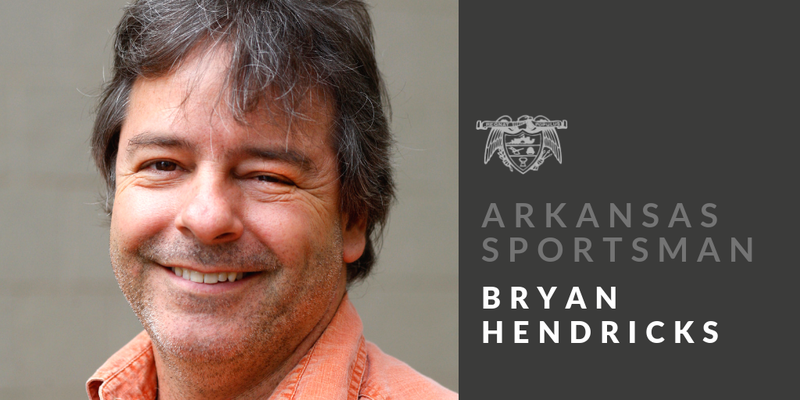Despite torrential rain and cold, a standing-room-only crowd attended the Arkansas Game and Fish Commission's Town Hall meeting Tuesday at Little Rock.
It was the first open forum for the Game and Fish Commission's governing body, which includes commission Chairman Ford Overton of Little Rock, Ken Reeves of Harrison, Andrew Parker of Little Rock, Joe Morgan of Little Rock, Bobby Martin of Rogers, Stan Jones of Walnut Ridge and J.D. Neeley of Camden.
Also attending were Patt Fitts, the commission's director; his staff; and the leaders of the agency's major divisions.
The forum enabled commission members to answer questions directly from members of the public. Commissioners directed questions about specific programs and policies to department heads.
Instead of hiding behind the big horseshoe desk above the audience, the commissioners sat in chairs on the floor in front of the audience.
The meeting ran 30 minutes over schedule to accommodate the 22 participants who offered questions or comments.
The commissioners expected the miserable duck season and chronic wasting disease to dominate the discussion. That was not the case, probably thanks to a short presentation at the beginning by Luke Naylor, the commission's waterfowl biologist, who said he was going to "take a bite out of the elephant in the room." Naylor acknowledged the poor hunting season and attributed the paucity of ducks to an overabundance of water in the state and the widespread dispersal of ducks.
Naylor added a cautionary note when he said that duck populations are declining across the continent, and that ducks fed nocturnally at Ed Gordon/Point Remove Wildlife Management Area. Even so, duck-hunting pressure is as intense as ever. For example, 104,000 hunters bought duck stamps this year.
"That shocked me," Naylor said. "I thought that would drop. Pressure is as high as it's ever been in Arkansas."
In the 1970s, ducks were exposed to 700 days of hunting in the Mississippi Flyway, Naylor said. Now they are exposed to more than 1,000 days of hunting in the Mississippi Flyway.
"Arkansas is still the destination for ducks and duck hunters," Naylor said. "I'm confident that we'll be in the top three again in duck harvest. Mallard harvest in Arkansas is over half a million. The next highest state is a little over half of that. Arkansas is still the place to be. As an agency, our focus should be on what we can control, monitoring populations and providing as much habitat as we can."
Surprisingly, more than 70 percent of the input was about managing wild turkeys and bass fishing.
Jeremy Miller of Greenwood asked why the Arkansas Wildlife Code does not specify a distance within which hunting turkeys over bait is prohibited. He said the vague wording of the regulation leaves interpretation entirely up to wildlife officers.
The commission revisited Miller's question at its regulations committee meeting Wednesday. Reeves, an avid turkey hunter, said the regulation must be clarified.
"If a case were to go to the Supreme Court, I would not bet on our side," Reeves said.
Joel Rawls recommended reducing the season bag limit from two gobblers to just one.
Reeves acknowledged that the commission has taken incremental steps to reduce the number of gobblers killed in the spring, from shortening the length of the season to opening the spring turkey season on Monday. He suggested additional steps might be appropriate.
Citing figures that demonstrate the social and financial importance of fishing in Arkansas, Alan Perkins of Little Rock said the commission should devote a larger percentage of its budget to fishing. He also said the commission should prioritize improving bass fishing on the Arkansas River.
Overton invited Perkins to make a formal presentation to the commission at a later date.
A doctor from Little Rock whose name I didn't catch sharply criticized the commission for spending $5 million on a new nature center in Springdale instead of on actual fish and wildlife related projects. He also challenged the commission to prove that the nature centers are effective at recruiting new hunters and anglers.
That stung a raw nerve with members of the commission who say that the Northwest Arkansas Nature Center is vital because the commission has virtually no presence in the fastest growing part of the state.
U.S. Rep. French Hill sent a letter to express his support for the Modernizing the Pittman-Robertson Fund for Tomorrow's Needs Act (H.R. 877), the Chronic Wasting Disease Study Act (H.R. 837), reauthorizing the Land and Water Conservation Fund and other wildlife-related federal legislation.
Hill also suggested creating a new license category for nonhunting and nonhunting beneficiaries of Game and Fish Commission programs.
Sports on 02/21/2019
